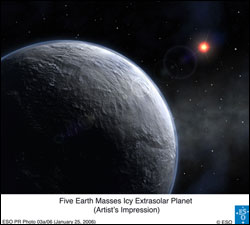Systematic postoperative surveillance of patients with rectal and colorectal cancer has demonstrated to produce an improvement in the survival of these patients. Nevertheless, it is currently discussed whether a more intensive surveillance strategy would provide significant advantage compared to a less aggressive strategy. The methodology currently used for testing and the frequency tests are applied are highly heterogeneous. So, in order to compare the efficiency of two surveillance strategi
UCLA paleobiologist J. William Schopf and colleagues have produced 3-D images of ancient fossils — 650 million to 850 million years old — preserved in rocks, an achievement that has never been done before.
If a future space mission to Mars brings rocks back to Earth, Schopf said the techniques he has used, called confocal laser scanning microscopy and Raman spectroscopy, could enable scientists to look at microscopic fossils inside the rocks to search for signs of life, such as
Researchers from Liverpool John Moores University’s Astrophysics Research Institute working as part of an international team of experts have made an exciting discovery that could help in the ongoing search for ‘other Earths’.
Mike Bode, LJMU’s Professor in Astrophysics, explained: “Until the 1990s, the only planets we knew of were the ones that orbited the Sun in our Solar System. Over the last 10 years, we have discovered around 170 planets around other stars, known as
A report entitled “International Perceptions of UK Research in Physics and Astronomy” was published on 26 January 2006.
The conclusions of the international panel included the following statement:
“The UK continues to enjoy a high standing in astrophysics and solar system physics. The best departments and individuals have outstanding international reputations and there has been considerable growth on several fronts since the 2000 review, both in terms of participation in larg
Finding the variants that human history has favoured
Sequence differences in less than 0.2% of the 3-billion-base human genome play a vital role in a bewildering variety of human disease. Today, researchers from the Wellcome Trust Sanger Institute and the Cambridge University’s Cambridge Institute for Medical Research, together with international colleagues report in PLoS Genetics their detailed maps of differences implicated in disease as well as genes that are unchanged in r

Distant Planet Brings Astronomers Closer To Home
Using a network of telescopes scattered across the globe, including the Danish 1.54m telescope at ESO La Silla (Chile), astronomers [1] discovered a new extrasolar planet significantly more Earth-like than any other planet found so far. The planet, which is only about 5 times as massive as the Earth, circles its parent star in about 10 years. It is the least massive exoplanet around an ordinary star detected so far and also the